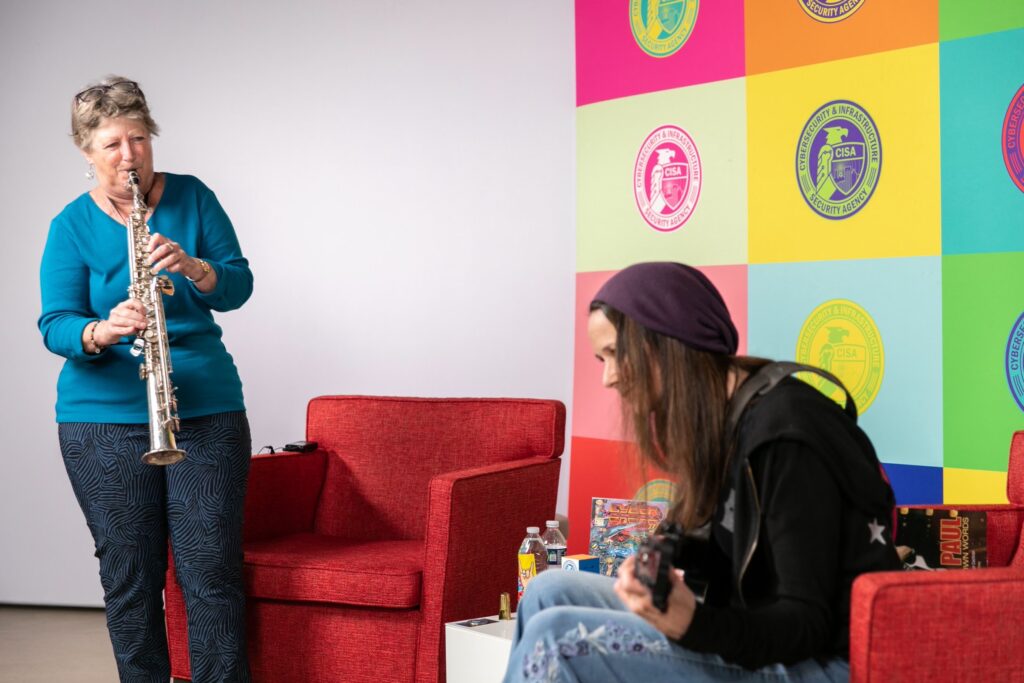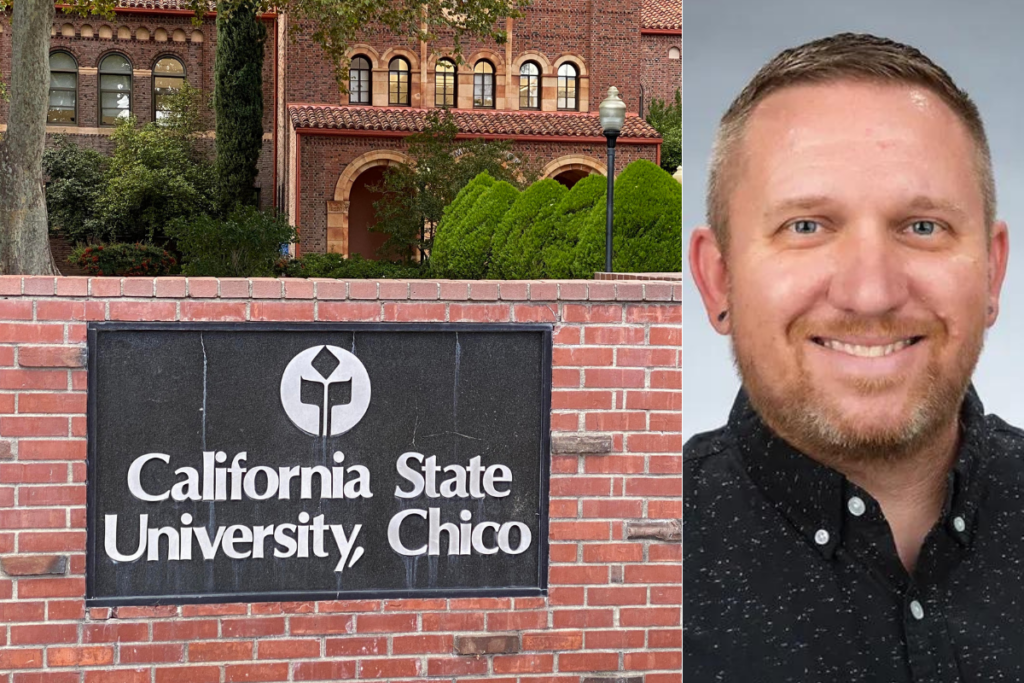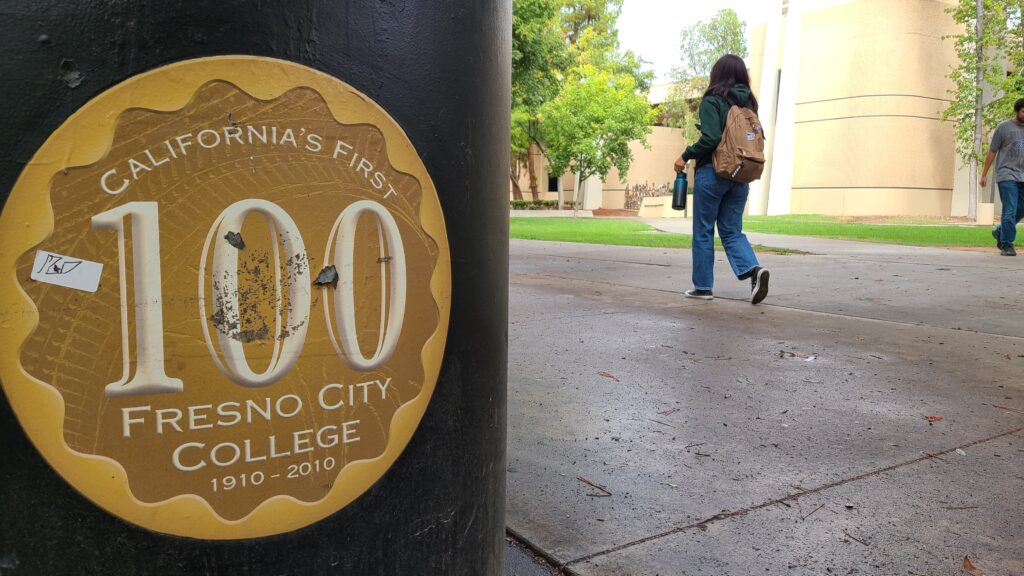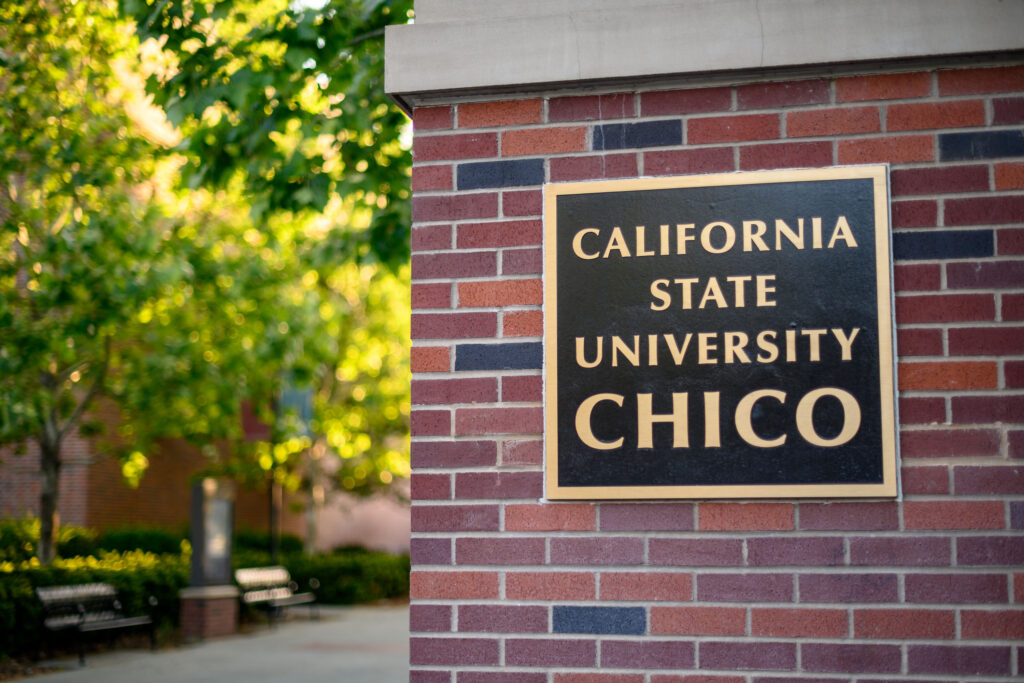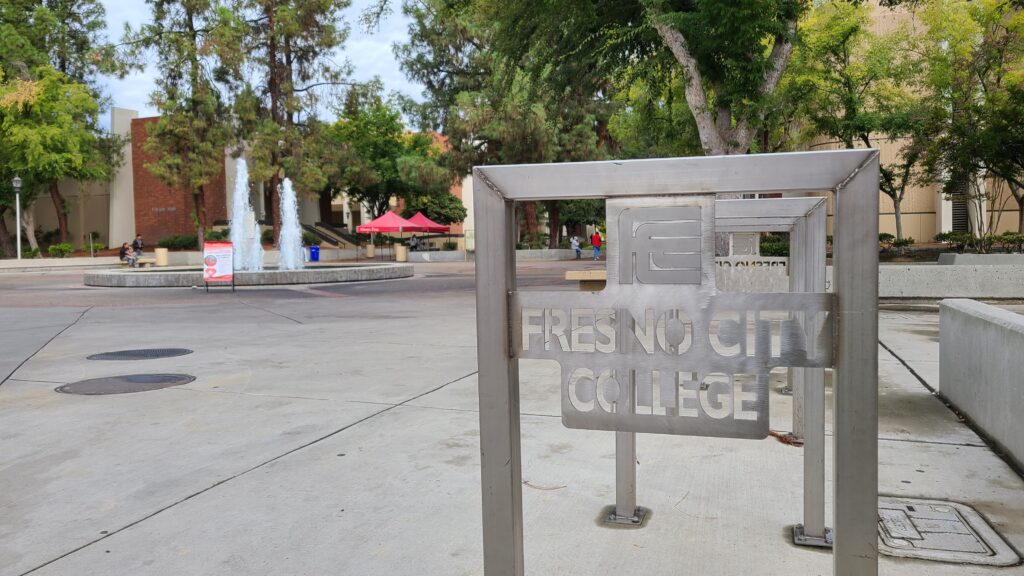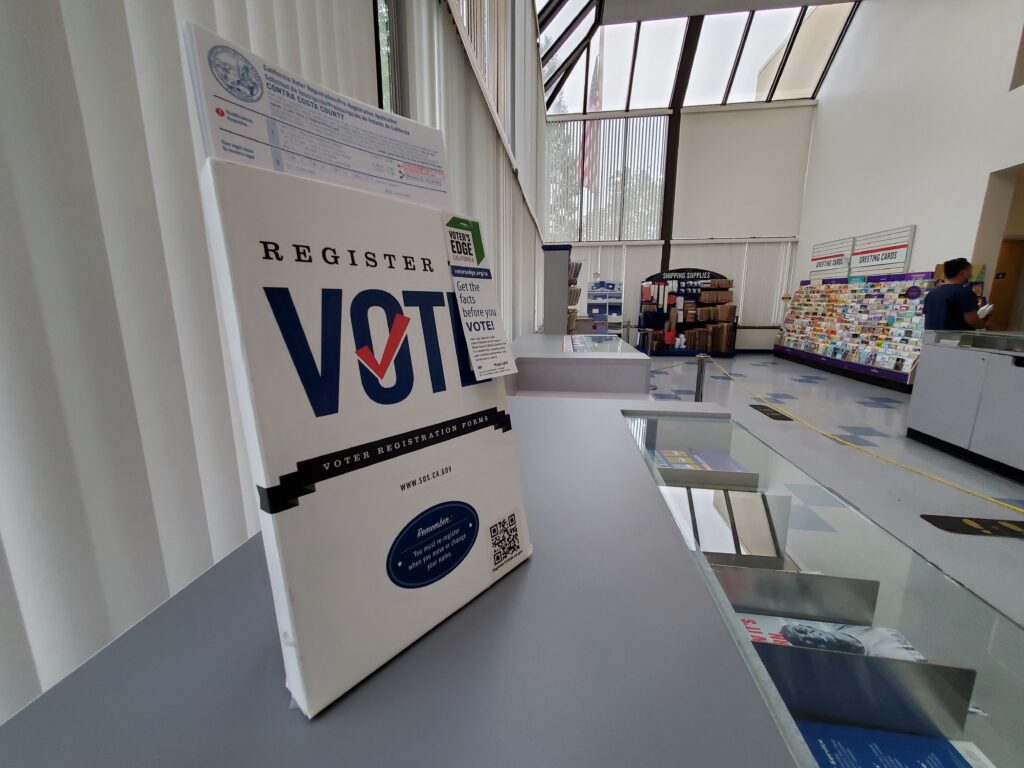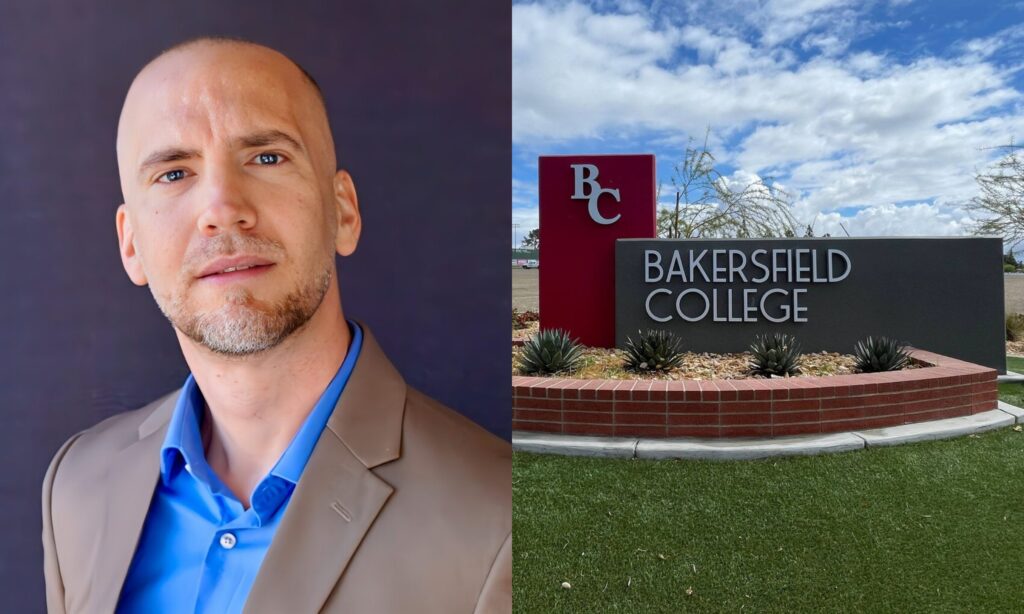
credit: the Staff at CISA (Cybersecurity and Infrastructure Agency)
Merryl Goldberg knows nothing if not how to improvise. The 64-year-old could make music before she could walk. She started beating out rhythms on the bongos as a toddler and never stopped, eventually becoming a saxophonist who toured for 13 years with Boston’s Klezmer Conservatory Band.
During her time on the road, she also moonlighted as a spy of sorts. At 26, she traveled to Russia in 1985 to meet with dissident musicians and hoodwinked the KGB by encrypting secrets in music. Along with her saxophone and sheet music, she packed stacks of spiral-bound notebooks crammed with handwritten notations embedded with hidden information.
“I came up with a code where different notes equal different letters and when it came to numbers, I would just correlate the numbers to notes in the scale and memorize the tune,” said Goldberg, an arts advocate and veteran music and arts professor at Cal State San Marcos. “When we got into the Soviet Union, they searched everything. With my music, they opened it up and there were some real tunes in there. If you’re not a musician, you wouldn’t know what’s what. They went page by page through everything — and then they handed it back.”
This kind of audacious inventiveness has become her calling card, colleagues say. She is the sort of woman who makes things happen, in and out of the classroom.
She “brings the best of creativity and artistic excellence into her approach to training future educators. Her enthusiasm for teaching and being a lifelong learner is contagious,” said Tom DeCaigny, former executive director of Create CA, an arts advocacy group. “She infuses humor and a knack for storytelling with intellectual rigor resulting in a dynamic classroom.”

credit: Albert Rascon
Merryl Goldberg’s class at CSU San Marcos
Her cloak-and-dagger drama further reinforced her profound belief in the transformative power of the arts. She has long been a fierce champion for the arts as part of a comprehensive education.
“What happened in the big No Child Left Behind push (2001) is that they began only testing for math and reading to the detriment of all the other subjects, which is just horrible,” Goldberg said. “Before that, the disciplines were not so separate, and education was far more comprehensive. In fact, music education was brought on board because the Founding Fathers wanted people to be able to sing hymns. Visual art started because of the Industrial Revolution, they needed people who could draw.”
Teaching the whole individual, integrating arts and social-emotional learning with academic rigor, is her mission. Indeed, in one of her signature courses, Learning Through the Arts, aspiring teachers learn how to teach reading, math, science and social studies through music, dance, theater, visual and media arts.
“There’s been such a big myth about the arts as fluff. They’re not. Art changes lives,” Goldberg said. “There is more to learning than facts. You can look up facts. You can’t look up how to be creative, how to improvise, how to innovate. You have to cultivate those skills over time, and the arts teach you that.”
Raised in Boston in a music-obsessed family, Goldberg is known for her chutzpah and her willingness to get creative to solve problems, such as the lack of arts educators in the state just as Proposition 28, the state’s groundbreaking 2022 arts initiative, ramps up. That’s why she created a new undergraduate pathway for arts teachers at Cal State San Marcos.
“Merryl Goldberg has a grand vision,” said Alison Yoshimoto-Towery, executive director of the UC/CSU Collaborative for Neuroscience, Diversity, and Learning. “Joy is an integral part to learning, and Merryl embodies this exuberance in her work with teachers, educators, and artists. Her work demonstrates the power of using arts to accelerate acquisition of other content areas such as literacy and language for all students.”
Goldberg is that rare academic who can build bridges between departments and disciplines at a time when many scholars exist in a silo of their own scholarship.
“She’s been a mainstay in the arts education field in California for many years,” said Jessica Mele, former program officer specializing in arts education at the Hewlett Foundation, a charitable foundation. “Merryl’s track record and relationships with both the undergraduate programs and the teacher preparation programs were key in making the case. Rarely do these two departments at any given university talk to each other, let alone collaborate in this kind of way. These sets of relationships are rare and valuable, and make her work very impactful, drawing together education decision-makers, teacher trainers, and prospective teachers.”
While some may associate the arts with an air of elitism, Goldberg is down-to-earth, quick to smile and unassuming, describing herself as a “big goofball.” Oh, and did we mention she’s a big Red Sox fan and also a boxer with a wicked left hook? As you might expect, when she gets in the ring, she finds the tempo in the pugilism.
“Merryl has so much going for her,” said Eric Engdahl, professor emeritus at CSU East Bay and past president of the California Council on Teacher Education. “I am impressed by the artful way in which she combines her high-level professional music skills and creativity so unassumingly with her passion for teaching. … I am also impressed with how humbly she is willing to learn from partners and collaborators. She asks questions from a genuine sense of curiosity and wonder.”
As it happens, her espionage was also rooted in her musical acumen. Goldberg developed a code that looked like musical notation, like melodies, to the untrained eye, when in reality it contained the names and addresses of the dissident musicians known as the Phantom Orchestra. The plan was to meet with, and jam with, these musicians and then smuggle out information about defectors to supporters in the West.
This proved to be more of an ordeal than Goldberg had anticipated. The KGB (today known as the FSB) remains notorious for the brutality of its intelligence gathering. She remembers being searched exhaustively, with agents going so far as to unwrap her Tampax. She and the other musicians were tailed, interrogated and often terrified, but the ruse seemed to work until one fateful day when the band found itself arrested, surrounded by soldiers toting machine guns.
“It was scary,” she said. “They locked us up and interrogated us, and they kept us hidden. They took away our passports. They didn’t let us call an embassy or family members or anything. In hindsight, they were probably debating whether they should lock us up for a long time. It was a close call.”
The band ended up being summarily deported. They later learned that some of the musicians they met with had been arrested and beaten.
“That was unimaginable to me,” she said. “It was very hard for me to cope with. The people we met were so heroic. They risked so much to fight for human rights.”
Goldberg later went back to graduate school at Harvard and majored in education, homing in specifically on the role of arts in learning and cultural exchange. She explores the topic in her book, “Arts Integration: Teaching Subject Matter Through the Arts in Multicultural Settings.”
The Soviet skullduggery also opened her eyes to the connection between musical notation and all other forms of code, including high-tech coding. To create her code, Goldberg assigned the notes in the chromatic scale, a 12-tone scale that includes semi-tones (sharps and flats), to the letters of the alphabet.
One takeaway for her is that while the relationship between musical education and math achievement has been fairly well established, far too few music students recognize the connection between the complex patterns inherent to both music composition and computer programming and the employment opportunities it may afford, particularly in the booming cybersecurity sector.
Goldberg is also a staunch champion of arts equity, seeing the arts as a vital connection to our shared humanity and not just an extra enjoyed by the privileged.
Most of her students at CSU San Marcos are the first in their families to go to college. Many have grown up lacking basics like food. They often juggle long hours at work with school just to make ends meet, all to pursue the enlightenment promised by the arts. She sees this enrichment as a basic right, part of the bedrock of education, alongside literacy and numeracy.
“The arts are an essential aspect of human development, that is, of knowing and being in the world,” as she puts it, “the arts are fundamental to education.”
